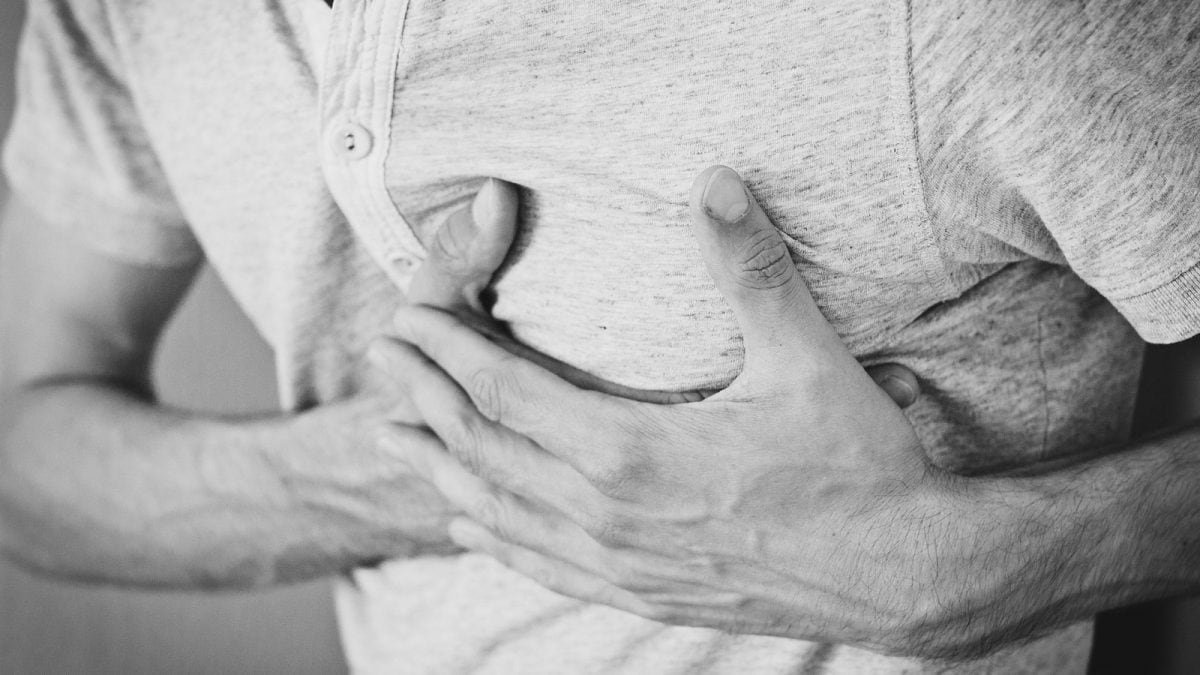Last Updated:June 01, 2025, 12:50 IST
Heart disease is a leading global problem, and blocked arteries can reduce blood flow, increasing the risk of heart attacks or failure.
Ignoring unusual fatigue may delay the diagnosis of cardiac conditions.
Heart disease remains one of the top causes of death globally. In today’s fast-paced, high-pressure world, many people neglect their health, often dismissing warning signs until a serious issue occurs. One particularly dangerous condition is heart blockage, which happens when the coronary arteries that supply blood to the heart become narrowed or obstructed due to plaque accumulation. This can significantly impair blood flow, increasing the risk of heart attacks or heart failure.
The key to managing heart disease lies in early detection. Health experts emphasise that recognising early symptoms can be life-saving. According to a landmark study published in the New England Journal of Medicine, nearly one-third of individuals who suffered a heart attack reported no chest pain. Instead, they experienced symptoms like fatigue, breathlessness, or nausea, especially common in women and the elderly.
To prevent serious complications, it’s important to be aware of the following seven warning signs of heart blockage.
Shortness of Breath
Struggling to breathe even during light activity or while at rest can signal that the heart isn’t pumping efficiently. When blood flow is reduced due to clogged arteries, the body receives less oxygen, resulting in breathlessness. This symptom often worsens over time and may point to heart disease or impending heart failure.
Unusual Fatigue
Persistent or sudden fatigue, especially if it doesn’t improve with rest, can indicate a failing heart. When circulation is compromised, muscles and organs are deprived of adequate oxygen, leading to exhaustion during everyday activities. Ignoring this can delay the diagnosis of serious cardiac conditions.
Radiating Pain (Neck, Jaw, Back, or Arms)
Discomfort that spreads from the chest to the shoulders, arms, jaw, neck, or back is a serious problem. It’s often mistaken for muscle strain or nerve pain, especially in women. This pain could be due to a lack of blood flow (ischemia). Consult a doctor if this occurs.
Cold Sweats Without Exertion
Sudden, unexplained sweating, especially when paired with other symptoms, should be treated as a medical emergency. Experiencing cold sweats without any physical activity or heat exposure may indicate cardiac distress. This reaction often stems from the body’s stress response to poor oxygen delivery.
Nausea, Dizziness, Or Lightheadedness
Dizziness, lightheadedness or nausea may be a symptom of inadequate blood flow to the brain due to blocked heart arteries. Symptoms tend to intensify with exertion. Combined with chest discomfort or breathlessness, this points to a potentially life-threatening heart issue.
Irregular Heartbeat (Arrhythmia)
Irregular rhythms, such as palpitations, fluttering, or a racing heart, may result from oxygen deprivation due to arterial blockage. While some arrhythmias are harmless, others signal serious electrical dysfunction in the heart and require evaluation by a specialist.
Swelling in the Legs or Feet
When the heart fails to pump effectively, fluid can accumulate in the lower limbs, causing swelling. This is often linked to congestive heart failure, a condition that may develop from long-standing coronary artery disease. Chronic edema, especially when paired with other symptoms, should be promptly addressed.
- Location :
Delhi, India, India
- First Published:
#Warning #Signs #Heart #Blockage #Ignore



